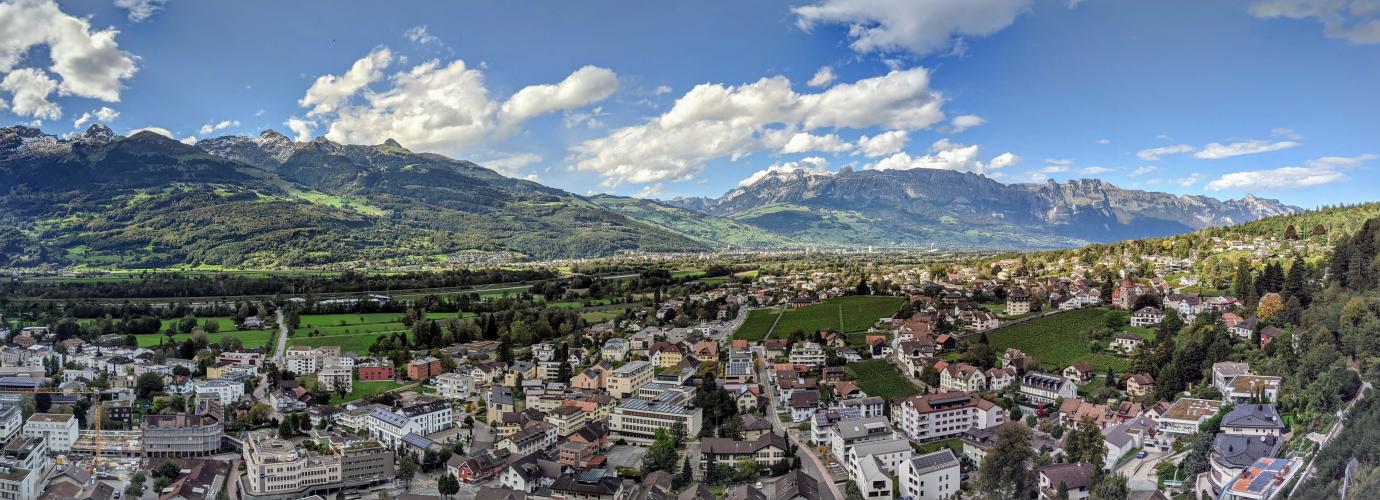The following description applies only to the tertiary educational programmes of type ISCED 5A (cf. Introduction Chapter 7).
The bachelor programme lasts for a minimum of three years (180 ECTS) and provides preparatory educational study and basic qualifications for subsequent employment types requiring the application of academic-scientific knowledge and methods.
Branches of study
The University of Liechtenstein offers bachelor programmes in architecture and economics. The Private University in the Principality of Liechtenstein does not offer bachelor programmes.
Admission requirements
Article 24 of the Higher Education Law stipulates the following requirements for admission to a bachelor programme:
- Knowledge of German (exchange programme students are exempt from this requirement)
- Matura (baccalaureat) or Berufsmatura (vocational baccalaureate)
Admission may also be made dependent on other study-specific criteria (e.g. artistic ability). Higher Education entrance qualifications from other countries are equivalent to Liechtenstein certificates in compliance with reciprocal inter-state agreements. Other types of certification have to be subjected to an equivalence check. Exceptionally, admission can be granted without the Matura or comparable entry qualification if applicants can provide other evidence that they are capable of studying and suited to the course they wish to pursue (“sur dossier” admission).
An applicant can be admitted to the Bachelor programme without a Matura, Berufsmatura or equivalent school leaving certificate if they satisfy the following conditions:
- Completion of a minimum three years of education at Secondary Level II;
- Six years of employment, of which at least three years must have been in the field or discipline in which they wish to pursue a study; and
- Proof of their ability to study by passing an entrance examination at the Matura level.
The procedure for “sur dossier” admission is determined by the universities.
Curriculum
The structure and content of the courses are independently determined by the individual higher education institution and set out in study guides and rules as well as in study plans and module handbooks. There are no national standards.
The study guides state which modules (including ECTS points) have to be completed in order to be awarded a final degree. They indicate the subjects that are either compulsory, compulsory optional or fully optional. The study guides and module handbooks serve on the one hand to orient the students and on the other to provide the basis for planning the syllabus for each subject area. Study guides and/or specific examination guides set out the preconditions for examinations, the examination procedure and the examination subjects.
Teaching methods
The types of teaching method and activities used (lectures, proseminars, seminars, drills, colloquia, tutorials, E-Learning etc.) are very varied and are selected independently by the universities themselves. Some courses require obligatory or recommended internships/work experience of varying lengths. Depending on the subject, case studies, project work and the like may form a part of the course. Self study (reading, composing written assignments, preparing seminar papers etc.) is a part of all courses.
Progression of students
The higher education and/or faculties’ study rules and doctoral degree regulations govern the admission, organisation and evaluation of performance checks (examinations, written work etc.), the option to repeat courses if necessary in the event of inadequate performance, and the maximum allowable length of study. The study rules of the University of Liechtenstein place an upper limit of 12 semesters for the bachelor level.
Employability
In respect of bachelor level courses, the Higher Education Law explicitly expresses the goal of qualifying students for professional employment, in addition to the academic aims. Implementation of this goal - including the creation and development of the syllabus - is the responsibility of the higher education institutions. Assessment falls within the framework of the quality assurance measures.
In order to facilitate and/or practically implement entry into a career, higher education institutions may insist on measures such as (mandatory) work placements and integrate these into the academic studies. Other forms of assistance, such as a Careers Service, may also be offered. There is no national plan for such measures. Interventions such as these are the responsibility of the higher education institutions themselves.
The successful completion of a Bachelors course is the precondition for entry into a Masters programme.
Student assessment
Performance assessment is based on the study and examination rules of the individual higher education institutions and is therefore the responsibility of the institutions themselves within the framework of the requirements of the Higher Education Law. At the University of Liechtenstein, students’ performance is assessed using the numerical marking system used in Switzerland and Liechtenstein (1 (lowest mark) to 6 (highest mark)) and/or with ECTS grades. The Higher Education Law governs the application of the European Transfer Credit System (ECTS) for all courses and defines a credit point as follows: 1 ECTS = 30 hours of work (lessons + individual student learning time). The higher education institution’s study plans and module descriptions state the number of ECTS credits for each module. In addition to providing for a description of the study courses and their modules, the law also refers to the learning outcomes. The National Qualification Framework orients itself on the Dublin Descriptors for describing learning outcomes. The performances achieved are set out in the Diploma Supplement.
Certification
The higher education institutions are responsible for the conferral of higher education qualifications and degrees. These are fundamentally governed by the law.
The following degrees are awarded for courses at the Bachelor level which have been pursued since the entry into force of the Higher Education Law:
- Bachelor of Arts in (+ subject);180 ECTS (min. 3 years)
- Bachelor of Science in (+ subject); 180 ECTS (min. 3 years)
The Higher Education Law obliges all higher eudcation institutions to provide free Diploma Supplements (in German and English).

